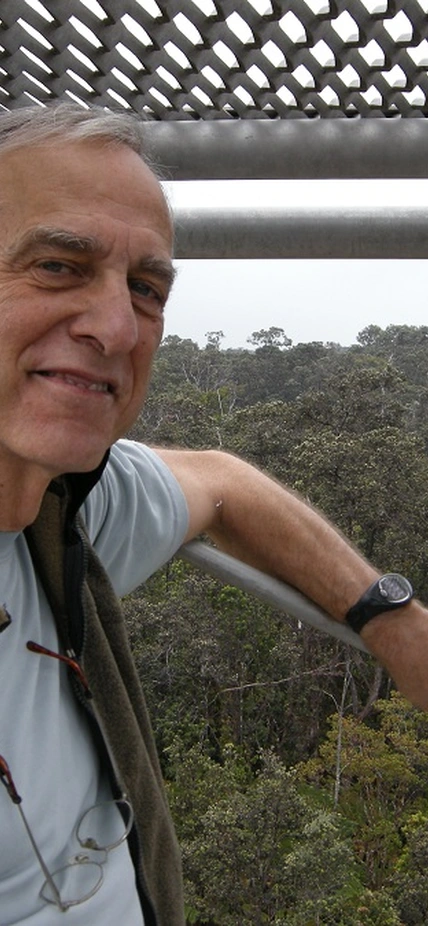Washington, D.C.—Joseph A. Berry, staff scientist at Carnegie’s Department of Global Ecology, has been elected to the National Academy of Sciences, one of 84 new members and 21 foreign associates. Election to the NAS is one of the highest honors given to scientists.
Berry has been a staff scientist at Carnegie since 1972. Over the years he has pioneered laboratory and field techniques for understanding the exchange of carbon dioxide and water between plants and the atmosphere. His models and methods are widely used for understanding local, regional, and global matter and energy fluxes, with important applications to crop yields, water resources, and climate change.
“Joe Berry has been a driving force in establishing the field of global ecology,” remarked Chris Field, founding director of Carnegie’s Department of Global Ecology. “His work has been foundational for the field. Joe has made major, fundamental discoveries in biochemistry, plant biology, global ecology, and climate science.”
Berry’s seminal papers include studies on modeling photosynthesis and water loss and a method for inferring water-use efficiency based on the composition of a leaf. Recently, most of his work has been at the global scale, where he is developing techniques for measuring photosynthesis in forests using satellite data.
“Joe’s science links so many fields, and in each of them he has innovated. He is a quintessential Carnegie scientist, original and inspiring. I’ve tremendously enjoyed learning from him. He also played a key role in the founding of our Department of Global Ecology a little over a decade ago,” remarked Carnegie president Matthew Scott. “The accomplishments of Joe and others in that department have had a very substantial impact.”
Berry received his B.S. in Chemistry from the University of California at Davis in 1963 and his masters in soil science from Davis in 1966. He earned a Ph.D. in botany from the University of British Columbia in 1970.
